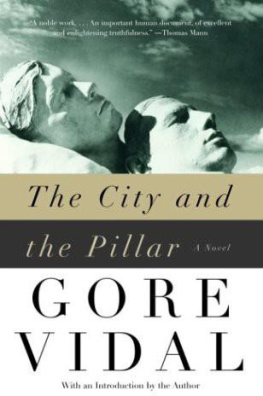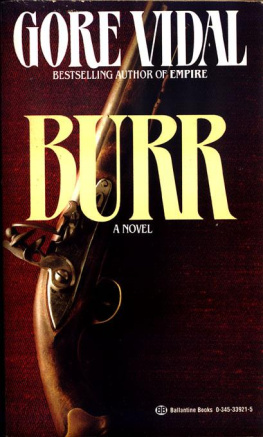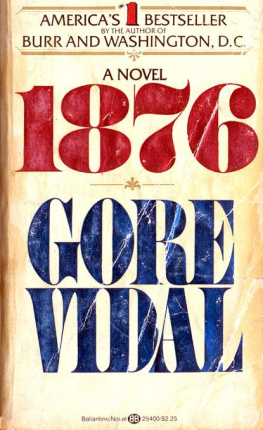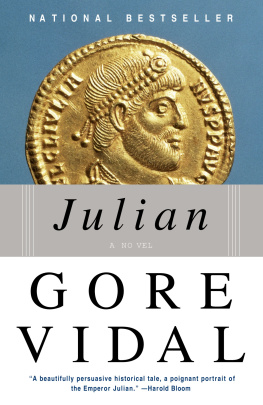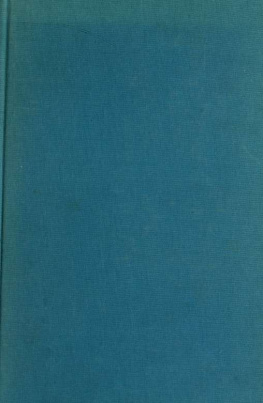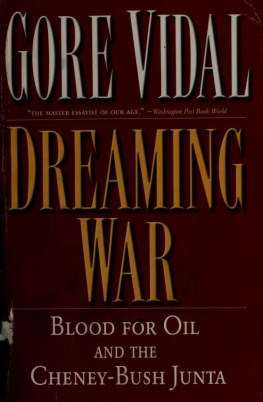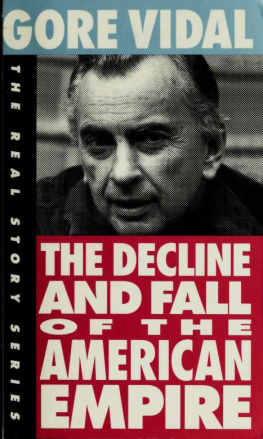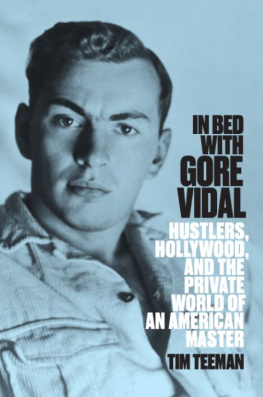Gore Vidal - Messiah
Here you can read online Gore Vidal - Messiah full text of the book (entire story) in english for free. Download pdf and epub, get meaning, cover and reviews about this ebook. genre: Prose. Description of the work, (preface) as well as reviews are available. Best literature library LitArk.com created for fans of good reading and offers a wide selection of genres:
Romance novel
Science fiction
Adventure
Detective
Science
History
Home and family
Prose
Art
Politics
Computer
Non-fiction
Religion
Business
Children
Humor
Choose a favorite category and find really read worthwhile books. Enjoy immersion in the world of imagination, feel the emotions of the characters or learn something new for yourself, make an fascinating discovery.

- Book:Messiah
- Author:
- Genre:
- Rating:5 / 5
- Favourites:Add to favourites
- Your mark:
- 100
- 1
- 2
- 3
- 4
- 5
Messiah: summary, description and annotation
We offer to read an annotation, description, summary or preface (depends on what the author of the book "Messiah" wrote himself). If you haven't found the necessary information about the book — write in the comments, we will try to find it.
Messiah — read online for free the complete book (whole text) full work
Below is the text of the book, divided by pages. System saving the place of the last page read, allows you to conveniently read the book "Messiah" online for free, without having to search again every time where you left off. Put a bookmark, and you can go to the page where you finished reading at any time.
Font size:
Interval:
Bookmark:

Gore Vidal
Messiah
1956
For
TENNESSEE WILLIAMS
I sometimes think the day will come when all the modern nations will adore a sort of American god, a god who will have been a man that lived on earth and about whom much will have been written in the popular press; and images of this god will be set up in the churches, not as the imagination of each painter may fancy him, not floating on a Veronica kerchief, but established, fixed once and for all by photography. Yes, I foresee a photographed god, wearing spectacles.
On that day civilization will have reached its peak and there will be steam-propelled gondolas in Venice.
November, 1861: The Goncourt Journals
Messiah
1
I envy those chroniclers who assert with reckless but sincere abandon: "I was there. I saw it happen. It happened thus." Now I too, in every sense, was there, yet I cannot trust myself to identify with any accuracy the various events of my own life, no matter how vividly they may seem to survive in recollection if only because we are all, I think, betrayed by those eyes of memory which are as mutable and particular as the ones with which we regard the material world, the vision altering, as it so often does, from near in youth to far in age. And that I am by a devious and unexpected route arrived at a great old age is to me a source of some complacency, even on those bleak occasions when I find myself attending inadvertently the body's dissolution, a process as imperceptible yet sure as one of those faint, persistent winds which shift the dunes of sand in that desert of dry Libya which burns, white and desolate, beyond the mountains I see from the window of my room, a window facing, aptly enough, the west where all the kings lie buried in their pride.
I am also conscious that I lack the passion for the business of familiar life which is the central preoccupation of our race while, worse still, I have never acquired the habit of judging the usual deeds of men two inconvenient characteristics which render me uncertain whenever I attempt to recall the past, confounding me sadly with the knowledge that my recollections are, after all, tentative and private and only true in part.
Then, finally, I have never found it easy to tell the truth, a temperamental infirmity due not so much to any wish or compulsion to distort reality that I might be reckoned virtuous but, rather, to a conception of the inconsequence of human activity which is ever in conflict with a profound love of those essential powers which result in human action, a paradox certainly, a dual vision which restrains me from easy judgments.
I am tempted to affirm that historic truth is quite impossible, although I am willing to accept the philosophic notion that it may exist abstractly, perfect and remote in the imagination. A windy attic filled with lovely objects has always been my personal image of those absolutes Aristotle conceived with such mellifluous optimism and I have always liked the conceits of philosophy, the more extravagant the better. I am especially devoted to Parmenides who was so strenuously obsessed with the idea of totality that he was capable, finally, of declaring that nothing ever changed, that what has been must still exist if it is yet remembered and named, a metaphysical conception which will, I suspect, be of some use to me as I journey in memory back to that original crisis from which I have for so long traveled and to which, despite the peril, I must return.
I do not say, then, that what I remember is all true but I can declare that what I shall recall is a relative truth as opposed to that monstrous testament the one-half world believes, entrenching deep thereby a mission at whose birth I officiated and one whose polished legend has since become the substantial illusion of a desperate race. That both mission and illusion were false, I alone can say with certainty, with sorrow, such being the unsuspected and terrible resolution of brave days. Only the crisis, which I shall record, was real.
I have said I am not given to making judgments. That is not precise. It is true that in most "wicked" acts I have been able, with a little effort, to perceive the possibilities for good either in actual intention or (and to me more important) in uncalculated result; yet, ultimately, problems in ethics have never much concerned me: possibly because they have been the vital interest of so many others who, through custom, rule society, more agreeably than not. On that useful moral level I have been seldom, if ever, seriously engaged but once on another, more arduous plane I was forced to make a choice, to judge, to act: and act I did in such a way that I am still startled by the implications of my choice, of my life's one judgment.
I chose the light in preference to the dreamless dark, destroying my own place in the world, and then, more painful still, I chose the light in preference to that twilight region of indeterminate visions and ambiguities which most suited my nature, a realm where decision was impossible and where the potentialities of choice were endless and exquisite to contemplate. To desert these beloved ghosts and incalculable powers was the greater pain, but I have lived on, observing with ever-increasing intensity that blazing disk of fire which is the symbol as well as material source of the reality I have accepted entirely, despite the sure dominion in eternity of the dark other.
But now, as my private day begins to fade, as the wind in the desert gathers in intensity, smoothing out the patterns in the sand, I shall attempt to evoke the true image of one who assumed with plausibility in an age of science the long-discarded robes of prophecy, prevailing at last through ritual death and becoming, to those who see the universe in man, that solemn idea which is yet called by its resonant and antique name, god.
2
Stars fell to earth in a blaze of light and, where they fell, monsters were born, hideous and blind.
The first dozen years after the second of the modern wars were indeed "a time of divination," as one religious writer unctuously described them. Not a day passed but that some omen or portent was remarked by an anxious race, suspecting war. At first, the newspapers delightedly reported these marvels, getting the details all wrong but communicating that sense of awfulness which was to increase as the years of peace uneasily lengthened until a frightened people demanded government action, the ultimate recourse in those innocent times.
Yet these omens, obsessive and ubiquitous as they were, would not yield their secret order to any known system. For instance, much of the luminous crockery which was seen in the sky was never entirely explained. And explanation, in the end, was all that the people required. It made no difference how extraordinary the explanation was, if only they could know what was happening: that the shining globes which raced in formation over Sioux Falls, South Dakota, were mere residents of the Andromeda Galaxy, at home in space, omnipotent and eternal in design, on a cultural visit to our planet if only this much could definitely be stated, the readers of newspapers would have felt secure, able in a few weeks' time to turn their attention to other problems, the visitors from farther space forgotten. It made little difference whether these mysterious blobs of light were hallucinations, inter-galactic visitors or military weapons, the important thing was to explain them.
To behold the inexplicable was perhaps the most unpleasant experience a human being of that age could know, and during that gaudy decade many wild phenomena were sighted and recorded.
Next pageFont size:
Interval:
Bookmark:
Similar books «Messiah»
Look at similar books to Messiah. We have selected literature similar in name and meaning in the hope of providing readers with more options to find new, interesting, not yet read works.
Discussion, reviews of the book Messiah and just readers' own opinions. Leave your comments, write what you think about the work, its meaning or the main characters. Specify what exactly you liked and what you didn't like, and why you think so.

